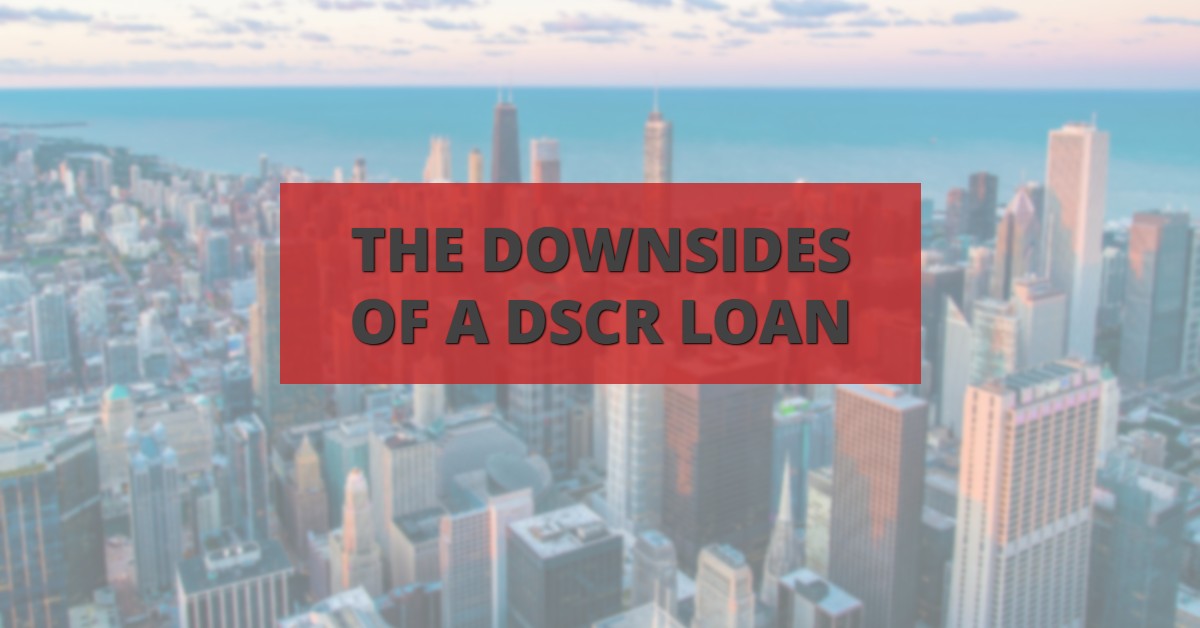How do you know if you’re the right type of person for a DSCR loan on a rental property?
What makes a good DSCR loan? What makes a good DSCR property?
We get hundreds of people asking these questions. While traditional loan offerings will be more or less the same from lender to lender, DSCR loans are more like the wild west. Every lender will have slightly different requirements, expectations, and terms.
But DSCR loans are an amazing option when used in the right place, on the right property, from the right borrower.
Let’s go over 10 things that will help you understand what’s right for a DSCR loan on a rental property.
What’s a DSCR Loan for a Rental Property?
Debt service coverage ratio loans are loans designed for real estate investors. They’re most often 30-year products, but some lenders will offer other types.
The debt ratio in a DSCR loan is based on two things: the property’s income and the property’s expenses (mortgage, interest, taxes, and insurance). Cash flow is a vital piece to DSCR lending.
Let’s look at 10 things to keep in mind for DSCR loans.
1. Income
DSCR loans are best for borrowers whose current income over the last two years doesn’t qualify for either a conventional loan or a loan from a local bank.
If your tax returns are low over the last two years, that’s where a DSCR loan might come in for your rental property.
2. Business History
Many real estate investors are new, so they don’t have two years’ worth of tax returns for their business.
With DSCR loans, the length of your business does not matter. You could have opened the LLC the morning you close on the loan. Banks need your business information because they’re lending based on you. DSCR lenders don’t because they’re lending based on the property.
3. Employment Gaps
In the same vein as the first two items, DSCR loans are great for people who just changed jobs, moved, or haven’t had a continual work history for the past two years.
A conventional bank won’t be understanding about career shifts or gaps in work. But they won’t impact your ability to get a DSCR loan.
4. Investing History
Traditional lenders can be hard on new real estate investors. They want to see past successful projects in order to trust you. DSCR loans, though more designed for investment properties, don’t care about your past real estate investing history.
5. Cash Flow on a DSCR Loan Property
To get a great DSCR loan, the rental property must cash flow. While there are some DSCR loans available for negative cash-flowing properties, you’ll only get the best rates and terms when you have positive cash flow.
6. Loan Limit
DSCR loans are also good for people who have maxed out the amount of conventional loans they can get.
Conventional loans have a limit of 10 per person. Once you’ve reached that limit, you need to start looking for alternative options (like DSCR loans).
7. Credit Score
The higher your credit score, the better. However, even people with lower credit scores (660 and below) have options with DSCR.
Keep in mind, a lower credit score means a more expensive loan. A more expensive loan will lower your cash flow. Lower cash flow might disqualify you for the loan.
Instead of a 7.5% interest rate, a poor credit score could only get you a 9.5%.
8. Holding a Property with a DSCR Loan for 3-5 Years
This is another area where DSCR loans differ from conventional loans: DSCRs come with prepayment penalties. This means if you pay them off before 3 or 5 years (whatever period is decided by the lender), then you get charged a hefty fee.
DSCR loans are best for people who want to hold the property, and not refinance or sell within the prepay period.
9. Property Is Turnkey
DSCR loans aren’t good for fix and flip properties. A DSCR property should need no work – it should be turnkey, totally ready.
This means you should use a DSCR loan on either rental-ready purchases or a refinance on a completely renovated BRRRR-style rental.
10. Interest-Only
Lastly, DSCR loans are good for someone looking for interest-only payments. Banks and conventional loans don’t offer interest-only options.
Doing interest-only improves your cash flow, giving you 5-10 years where you don’t have to pay principal.
The Right DSCR Loan for a Rental Property
When you’re looking for cash flow, always look at all of your options before you jump into a loan.
We hope this article gives you an idea of what you should look for when you shop around.
Download this free DSCR calculator for the next time you’re shopping for rentals, and send any questions our way at Info@TheCashFlowCompany.com.



